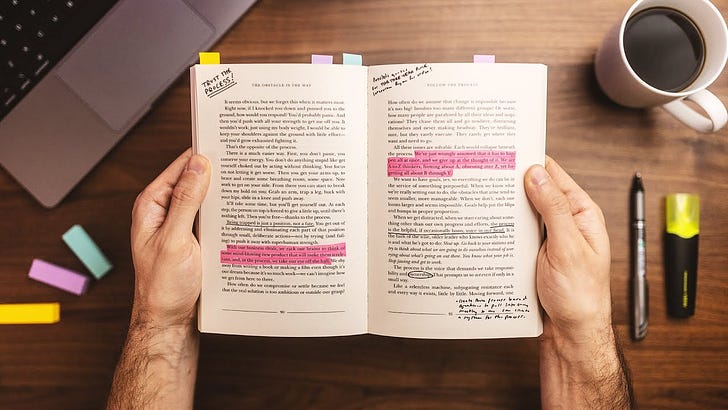Don’t just say you have read books. Show that through them you have learned to think better, to be a more discriminating and reflective person. Books are the training weights of the mind. They are very helpful, but it would be a bad mistake to suppose that one has made progress simply by having internalized their contents
Epictetus
How often have you read a couple of chapters of a book, and after taking a break, you can not remember a thing you’ve read? Perhaps like me, your mind was preoccupied with something else while your eyes skimmed the page. The book “Make It Stick: The Science of Successful Learning” explains that our mind tends to confuse fluency with mastery. Essentially, your reading ability tricks you into thinking you also understand it.
Here are two examples of how you can increase your understanding and memory of topics you’re studying:
The Feynman technique: Named after theoretical physicist Richard Feynman this technique is very simple, which is the point because making something complex seem simple is hard. Essentially as described, you take whatever you are learning and write it down as if you were teaching someone in the lamest terms, which don’t have the basis of knowledge you have on the subject. This is a significant first step for solving complex problems or simply making it easier for your memory.
A technique author Ryan Holiday learned from author Robert Greene recently crossed my path thanks to Matt D’Avella. So as Ryan is reading a book, he folds the pages he likes and writes notes and highlights on them. He then transfers the things he wants, the ideas, and the stories to note cards. From there, he will organize the note cards to create “an external brain.”
If you want to become a great thinker, you need to understand the limitations of the mind and find valuable solutions to solve its problems. I once heard a professor talk about smoking nicotine while learning to help create new neural pathways because your brain becomes less plastic as you age. The Feynman technique makes it easier to recall information when it’s more simply understood. The Robert/Ryan technique makes it easier for your brain to quickly access a plethora of well-organized information without the strain of keeping these ideas constantly circulating in the limited real estate in your head.
Hear Matt talk with Ryan Holiday in more in-depth about the concept mentioned above in the YouTube clip below
Make It Stick: The Science of Successful Learning by Peter C. Brown, Henry L. Roediger III, Mark A. McDaniel




